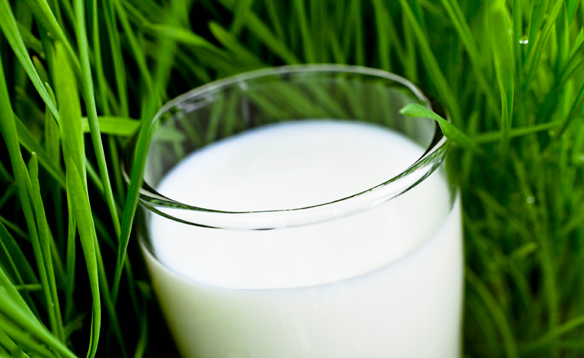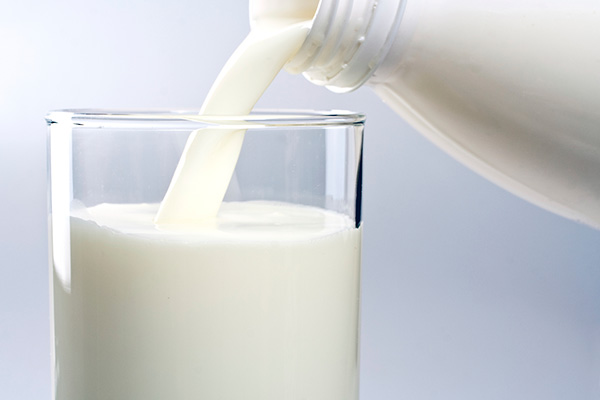Not everyone knows the benefits of a diet rich in milk and milk derived products. In milk there is a unique combination of substances that prevent and successfully deal with stress (because it contains calcium, minerals and vitamins), reduce blood pressure and risk of stroke, reduce the risk of colon cancer, reduce the risk of osteoporosis, relieve PMS symptoms, lower risk of developing ulcers, improve digestion, help prevent and control obesity and improve sleep quality.
Milk has more nutrients than many other beverages, even if those are enriched with vitamins. Drinking milk is the most natural way to give your body energy and its daily necessary vitamins and minerals. Milk is a natural “fuel”: if you lead a very active life or strenuous physical activities, if you drink milk you fuel the body with energy, because of the carbohydrates. Next time when you want to eat a tablet of chocolate or a refreshing drink, choose a glass of milk instead. Calcium helps build and maintain bone mass, is vital for normal functioning of nerves, muscle contractions and blood circulation.
Proteins play an important role in brain development and bone. Vitamin B12 is essential for nervous system development and health, and vitamin D helps absorb calcium and phosphorus (without vitamin D, your body absorbs only 10-15% of the swallowed calcium). Riboflavin cells produce energy and plays a vital role in the nervous system development. Potassium from milk regulates blood pressure and influences muscle activity.
If you want to lose a few pounds of weight, add low-fat milk in your diet. Fat-free milk has only 80 calories per 250 ml and absolutely no fat at all. If you’re not hungry in the morning, replace breakfast with a glass of cold milk, you can sprinkle over cinnamon, vanilla or cocoa powder. If you get hungry between meals, drink a glass of milk.
To prevent osteoporosis, follow a balanced diet, but rich in calcium and vitamin D, do sports (aerobics, jogging, etc.) for 20-30 minutes every day, do not smoke, and limit alcohol consumption. Of course, annual doctor visits should include analysis of bone density, especially after menopause in women. If your lifestyle includes the following, you may have some fractures sooner than you expect: you do not eat calcium-rich foods (milk, orange juice or grapefruit, yogurt, cheese, parmesan cheese, cottage cheese, salmon, tofu, broccoli), you smoke, drink a lot of (and often) alcohol, have a sedentary lifestyle.
However, milk has also a few disadvantages you should be aware of:
It is low in iron, copper and ascorbic acid (vitamin C). It has high sodium volume, which makes it contraindicated in some conditions in which sodium restriction is recommended. Will cause a strong stimulation of pancreatic reaction, which is not recommended when the pancreas is affected. Contain saturated fatty acids rich in fat, low in essential fatty acids. If milk is so necessary and useful to man, it can become harmful when it comes from a sick animal or by improper handling resulting contamination.
If we are sure that the milk comes from healthy cows and that the milking procedure was hygienically handled, you can consume unpasteurized milk, which contains more vitamins and enzymes and will improve the body’s immune system.

